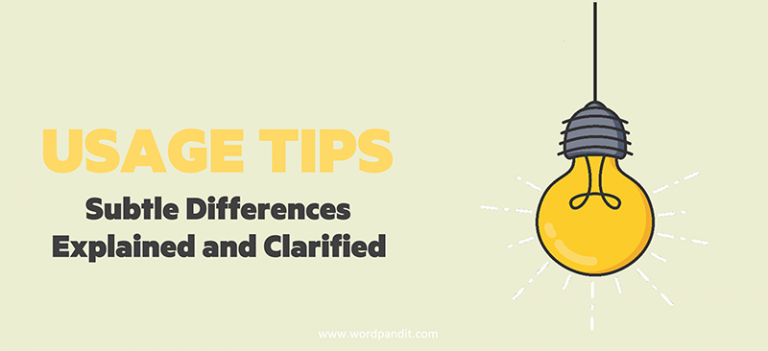Insidious vs. Invidious: Clarifying the Confusion ✨
Do you find yourself pausing when trying to use “insidious” or “invidious”? 🤔 You’re not alone. These two words are not only similar in sound but also cause a lot of head-scratching due to their nuanced meanings. Let’s clear up the confusion so you can confidently use these words without missing a beat! ✅
Insidious and invidious are both adjectives that often carry negative connotations, but they serve different purposes. Read on to discover how to distinguish between them with ease. 🔍
Breaking It Down: Insidious 🐍
Definition: Insidious means something that proceeds in a gradual, subtle way, but with harmful effects. It often implies a danger that builds up stealthily over time, making it difficult to notice until it is too late. ⚠️
Pronunciation: in-SID-ee-us 📢
Etymology: The word insidious comes from the Latin word insidiae, which means “ambush.” 🏹 This helps us understand why insidious relates to something treacherous or sneaky. It evokes the image of a hidden danger lying in wait, ready to strike when least expected. 🐾
Usage Examples:
- “The disease progressed in an insidious manner, showing no symptoms until it was too late.” 😷
- “He was unaware of the insidious influence the toxic friend had on his behavior.” 🌀
- “The company’s insidious marketing tactics subtly manipulated customers over time without them realizing it.” 📉
Synonyms: stealthy, subtle, sneaky, treacherous, deceitful 🤫
Antonyms: obvious, direct, transparent 🔍
Understanding Invidious ⚖️
Definition: Invidious describes an action or situation likely to arouse resentment or anger in others. It often involves unfairness, favoritism, or discrimination that causes feelings of bitterness or animosity. 😠
Pronunciation: in-VID-ee-us 📢
Etymology: Invidious comes from the Latin word invidia, meaning “envy.” 🧿 This origin hints at its connection to arousing ill will or animosity. When something is invidious, it tends to stir up negative feelings, particularly those related to jealousy or perceived injustice. 💢
Usage Examples:
- “She was placed in an invidious position, having to choose between two close friends.” 🫂
- “The policy was invidious as it unfairly targeted a specific group of employees.” 🏢⚖️
- “Making an invidious comparison between two coworkers can lead to unnecessary conflict and resentment.” 🔥
Synonyms: offensive, unjust, discriminatory, prejudicial, divisive 🚫
Antonyms: fair, equitable, just ⚖️
Insidious vs. Invidious: The Difference ⚡
Think of insidious as something harmful that sneaks up on you, like a wolf in sheep’s clothing. 🐺 It’s subtle, creeping, and dangerous, often acting over a period of time without being immediately noticeable. On the other hand, invidious is more about causing offense or inciting resentment. 😡 If something is invidious, it’s likely to make people feel unfairly treated or angry, often in a more obvious and direct way.
For example, a marketing scheme could be insidious if it gradually manipulates people without them realizing it. 🤫 Conversely, a comment made during a meeting could be invidious if it makes one employee feel targeted or slighted in an overt manner. 🗣️
Mnemonic Device 🧠
To remember the difference, think: Insidious = In Sneaky (both start with “in” and it’s sneaky 🐍), while Invidious = In Envy (think of the Latin root for envy, invidia 😠). This can help you connect insidious to something subtle and harmful, and invidious to something that stirs up negative emotions or jealousy.
Related Confusing Words 📚
If you found this comparison helpful, you might also want to check out other commonly confused pairs like tortuous vs. torturous 🌀, or affect vs. effect 🎯. Expanding your knowledge on these word pairs will surely make you a more confident communicator! The English language is full of such nuanced words, and learning them will give you a richer vocabulary and more precise ways to express your thoughts. 💬
Another confusing pair is enervate vs. energize. While enervate means to weaken or drain of energy, energize means to give energy or vitality. Understanding such contrasts can greatly improve your command of the language. 💪✨
Quick Recap 🔄
Insidious: Subtle, harmful, sneaky, and often unnoticed until significant damage is done. 🐍⚠️
Invidious: Offensive, likely to cause resentment, unfair, and often overt in its impact. 💢
Test Your Knowledge: Insidious vs. Invidious Quiz
1. The new policy was so ___ that it caused widespread discontent among the staff. 😡🔥
2. The virus spread in an ___ manner, slowly affecting the population without them knowing. 🦠🌍
3. True or False: “Insidious” means likely to cause resentment or anger in others. ❌😠
4. Which of the following is a synonym for “invidious”? 🤔📖
5. He made an ___ remark that unfairly criticized his colleague. 🗯️💬
6. Which word would best describe a sneaky and harmful influence? 🐍🔍
7. The manager’s decision was so ___ that it created hostility among the team members. 🥵⚔️
8. True or False: “Invidious” actions are often subtle and go unnoticed until it’s too late. ❌⏳
9. The ___ nature of the advertisement led people to unknowingly adopt unhealthy habits. 📢🍔💊
10. Which of the following words is derived from the Latin meaning “ambush”? 🏹⚔️
11. The politician’s speech was ___, subtly planting distrust in the audience’s minds. 🎤😈💬
12. True or False: “Insidious” actions are often direct and intended to offend immediately. ❌🚫
13. The teacher’s ___ comparison between students led to feelings of jealousy and frustration. 😤📊
14. Which word would describe a hidden agenda that gradually influences people? 🕵️♂️🎭
15. Her actions were so ___ that no one realized the harm until much later. 😬🌫️













